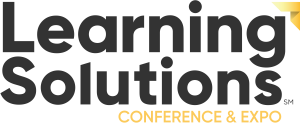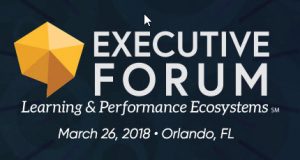David Kelly’s Curated L&D Content for the Week of 1/29/18
 This week’s curated content includes links exploring the following:
This week’s curated content includes links exploring the following:
- Tips on developing respect for L&D in your organization
- a curated list of free stock photo resources
- Why asking learners for Level 3 & 4 feedback doesn’t work
- Tips to take control of your career development in 2018
- An example of what’s different about designing for VR
- what capabilities are needed in high-performing L&D organizations
Three simple but powerful ways to get love from your leaders by Cathy Moore
We all want the L&D function to be seen as a partner to the organization. We know the things that can drive that within a culture – a focus on behaviors/performance and measuring what matters in that context. But what do those ideas look like in practice? This post shares three simple things you can do to enhance the reputation L&D has in your organization.
85 Free Stock Photo Resources – How to Use Them by Jake Rheudeby
Images are extremely valuable to the elearning designer, but they can also be expensive to license and use. That’s what makes sites that highlight free or low-cost images so valuable. This post curates a number of different sources that instructional designers may want to bookmark for future use. More importantly, it provides some guidance on how these types of assets can be used in your projects.
One of the Biggest Lies in Learning Evaluation — Asking Learners about Level 3 and 4. by Will Thalheimer
Kirkpatrick’s levels of evaluation form the foundation upon which many in L&D stand when they think about building an evaluation strategy. The higher levels of the model (behavior and results) are the most valuable to orgainzations, but they are also the most challenging to measure. One common technique to simplify this measurement is to ask the learners questions that are designed to elicit feedback that supplies the necessary data. As a concept, it sounds like a great idea, but in practice, it rarely if ever works. This post explains why.
6 Ways to Take Control of Your Career Development If Your Company Doesn’t Care About It by Carter Cast
Professional development is what L&D professionals essentially do. Ironically, it’s something we too often forget to do for ourselves. This post shares a number of great tips that can use to guide your professional development. However, the post leans towards positioning the tips around moving forward within your company, and I think that’s a mistake. It’s increasingly important for individuals to own their professional development instead of allowing it to be defined by a current employer. Decide what you want to do next, and work on developing that. These tips can be applied in that context as well.
‘Wolves in the Walls’ Marks a New Chapter for Interactive Narrative VR by Jesse Damiani
As existing designers and developers start playing in the virtual reality space, one of the first questions that need to be explored is “How do my skills and approaches translate to this new medium?” Some of what we do today may translate well, but other aspects of the VR medium are unique and require different approaches. This post explores this concept through the eyes of how cinematography in filmmaking translates to VR storytelling.
Embracing L&D’s evolving role: Less control, more influence by Dani Johnson and Jen Stempel
As the responsibility for support of learning in an organization continues to expand beyond the L&D Department, a question is starting to emerge. If everyone is responsible for supporting learning, how does the L&D department’s role change? This post looks into recent research and explores the new capabilities that are critical for today’s high-performing learning orgainzations.
What is a Learning and Performance Ecosystem?
 Learning has evolved. Our notions about learning had their foundations in our experience of teachers or experts sharing their knowledge. Technology may have evolved, but the overall top-down paradigm in which learning content has been able to be consumed has remained largely unchanged.
Learning has evolved. Our notions about learning had their foundations in our experience of teachers or experts sharing their knowledge. Technology may have evolved, but the overall top-down paradigm in which learning content has been able to be consumed has remained largely unchanged.
Until now.
Advances in technology drive much of this evolution, placing more options for learning directly into the hands of the learner. Traditional forms of training still have their place and value, but the world of workplace learning has grown exponentially in recent years, and our methods for supporting it need to evolve according.
 At this year’s Learning Solutions Conference and Expo, we’re specifically targeting this growing need with a number of resources, from our Learning and Performance Ecosystem sessions, to a dedicated track exploring learning platforms, to our Executive Forum and more, there’s plenty available to help individuals and orgainzations make sense of the growing word or L&D.
At this year’s Learning Solutions Conference and Expo, we’re specifically targeting this growing need with a number of resources, from our Learning and Performance Ecosystem sessions, to a dedicated track exploring learning platforms, to our Executive Forum and more, there’s plenty available to help individuals and orgainzations make sense of the growing word or L&D.

Leave a Reply